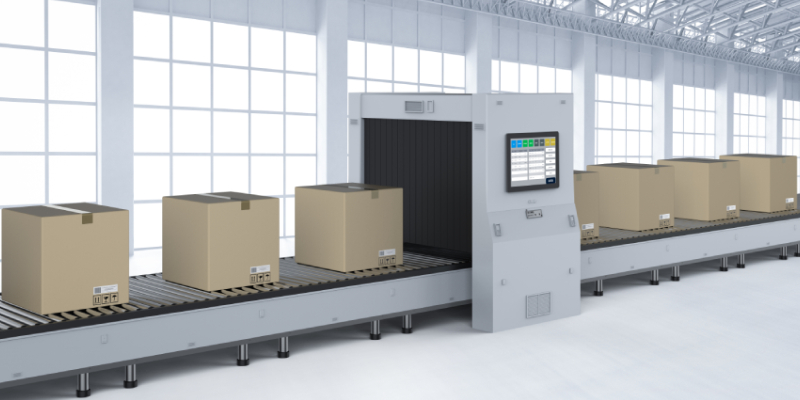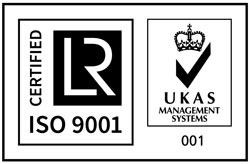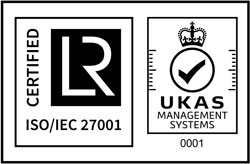
Security in the mailroom is a critical consideration often unaddressed in government undertakings, high-end companies, and other enterprises. Failure to foresee and address major threats like chemical, biological, or radiological threats, theft, or even explosives in mail or package deliveries has resulted in injuries, facility evacuations, loss or damage to property, and even death.
Effective Measures for Strengthening Mailroom Security
As a critical part of enterprise security, mailroom safety must be addressed seriously. Let's discuss a few effective measures to implement for effective mailroom security.
Assessing risks
Every company needs a custom security plan, depending on its risk profile. You can conduct a thorough risk assessment based on the following perpetrators:
High volume of mail:
Massive mail creates a potential for security risk since there is a greater possibility for dangerous mail to go undetected.
Threats related to symbolism:
Threats based on symbolism are inevitable over the long run, no matter how large or small your enterprise is. Non-profit helpers of immigrants, abortion clinics and other such enterprises are always in danger and will need to be highly vigilant at all times.
Location:
A threat to an organisation may also be assessed by location. There is always a greater potential for danger in an urban area than in a rural setting.
Public standing:
Larger enterprises always in the public eye, including transportation or legal sector enterprises, banks, etc., are always more prone to the danger of being targeted than smaller enterprises.
Streamlining workflow
Clumsy process organisation creates security gaps. Streamlining mailroom procedures for incoming mail, sorting receivables, and storing and then delivering mail and packages will help you keep on top of what goes in or out of the mailroom. Digitising information is another great way of keeping stock of mailroom proceedings. Scanning receivables, dispatches and delivering information with updates to employees who need to pick up their mail is a great defence against mailroom threats. Complete visibility means that you can quickly identify mail that looks suspicious or threatening.
Defining clear channels for communication
The process of addressing mailroom security risks is a great need for maintaining security. Without a clearly defined communication channel between employees and those responsible for handling threats, suspicious mail or activity may go unreported. It is also important to clearly define what category of threats needs to be conveyed to the higher chain of command.
Setting up a COOP
A COOP, or Continuity of Operations Plan, is another critical component of an emergency plan in companies dependent on inbound or outbound mail. A shutdown of mailroom processes will be detrimental to company proceedings and must be addressed immediately. A COOP is mainly targeted at recovering mailroom operations in as little as possible to contain the detrimental effect on business operations when there is an unplanned shutdown of the mailroom. Every company or enterprise will have a custom COOP, and activation will depend on situational factors. The nature of the unexpected event also determines how long it will take to return to normalcy.
Recruiting in-house personnel for security
The benefit of recruiting in-house help comes in the ability to keep your mailroom privacy intact. It has also been found that it is easier for in-house teams to detect suspicious mail and threatening elements since they are familiar with what belongs to the organisation. That's why the most fitting members of the mailroom security team will be in-house recruits.
Training effectively
Regular training programs and upgrades should be prioritised for effective mailroom security. Your personnel should be aware of the procedures to follow to identify and tackle a range of potential mailroom threats, including explosives, suspicious powders, liquids, or other substances or even what a suspicious package will look like. They need to be constantly updated about how to handle screening equipment, identify and report packages gone missing, and the best ways to tackle threats.
It is important to treat mailroom security as a team effort. All those involved need to be trained and educated to the required level of expertise. Every company will need to pitch their security training standards and methods to serve the security needs of their mailroom system. For the greatest effect, these need to be customised to every team, including security teams, general mailroom employees who sort and process mail, mailroom employees in central management, etc.
Defining SOP
Systematisation and adherence to all operating procedures is another critical step to effectively addressing mailroom threats. Standard Operating Procedures, also called SOPs, should include:
- Effective emergency response exercises
- Screening procedures for all standardised mail
- Screening for suspicious mail
- Custom screening technology and tools suited to the company's mailroom needs
- A well-thought-out global mail handling system
- High standards for recruitment, training programmes with certification
SOPs will only be effective if they are periodically evaluated for efficiency and updated as company risk levels and particular risk needs evolve.
Investing in screening equipment
Screening has now become a standard security procedure. There are two major types of security technology for the mailroom: detection equipment and equipment for identification.
X-ray scanners, for example, can be used together with manual searches to scan large boxes and detect contraband material like knives, drugs, or firearms. These can also be effective for explosives or bomb detection in mail packages and envelopes.
Installing negative pressure systems against biohazard threats.
The millimetre wave scanning equipment will be able to detect those hazards that the X-ray scanners can detect as well as those they cannot. They work better on smaller packages and mail envelopes and can even detect substances that otherwise go undetected, like powders and liquid hazards. On the other hand, toxic chemicals can be detected if air sampling equipment can be installed at loading docks and mailroom receiving docks. With this technology, employees should be able to receive automatic updates if threats are detected. Once a threat is detected, it can be moved up the proper channels to involve security personnel, the police force and others to be mitigated quickly.
Prioritising Employee Safety
Employee safety should be a top priority in all situations. Companies should have emergency uniforms and safety wear like N95 breathing masks and standard safety smocks. Exposure to biohazards can be met with safety boots, hoods, gloves and even full-coverage Tyvek suits.
Also Read: An Up-close Look into the World of Courier Services
Practical Emergency Response Procedures for Mailroom Security
The optimal emergency response plan must be a two-fold approach to handling emergencies in the mailroom. These should include a plan for an overall response to the emergency and one for actions that responders need to take to mitigate the emergency. Every response plan should be able to prepare the organisation for both likely threats as well as those that are highly dangerous. At its core, the emergency response plan should work to minimise danger to life and property.
The first response to a mid-level threat should be to return the organisation to normalcy and resumption of operations. Emergency response plans will only be effective if they are constantly reviewed, upgraded, and regularly shared with the organisation's employees, at least once a quarter.
First-level response to mailroom threat
With this kind of preparation, you can be ready for emergency situations when they arise. When the unthinkable does occur, like an in-house employee encountering a dangerous package in the mail, the following guidelines could help you act fast:
- Isolate the package that has been identified as dangerous.
- Maintain a record of why it was considered dangerous.
- Contain the threat as much as possible by minimizing contact with the package and responsibly handing it - no shaking or attempts to open it.
- Place packages deemed as threats outside the company premises as soon as possible in an isolated area.
- Packages or mail that pose chemical, biological, or radioactive threats must be contained or sealed.
- Be extra careful about radio-frequency devices around explosive devices.
- Use a safe and effectively fast mode of communication to spread the word of the danger.
- Create an area of isolation around the object of suspicion.
- Conduct a safe and thorough evacuation of the building.
- Decontamination should be immediate if there is an instance of exposure to a dangerous substance.
- Coordinated communication should be maintained between company authorities, mailroom management, and security personnel.
Additional Best Practices for Optimal Mailroom Security
Every mailroom needs to adopt industry-standard security measures to keep up levels of safety. Some of these include:
- Physically robust barriers in the mailroom
- Security equipment and trained personnel, like state-of-the-art surveillance equipment and trained guards
- Develop a system that keeps track of people who enter and exit your company premises, like issuing temporary photo identification.
- Secure loading docks using robust measures.
- Use a tracking system for all inbound and outbound mail.
- Screening company supplies and all storage facilities must be secured and checked regularly.
- All supply shipments must be tracked from dispatch to delivery, and invoices compared against manifests.
- Secure undelivered packages until they can be processed.
- If possible, carry out mail processing at an off-site location. This measure will greatly reduce the possibility of on-site dangers.
Concluding thoughts
Threats and potential dangers are to be expected and may continue to escalate in scale and sophistication as technology advances. Our best defence against such risks is to be prepared to address such dangers in our security measures. Constant review and up-gradation are also required. Risk assessment and security needs are unique to each organization, so a customized approach to mailroom security with measures for detection and diffusion is the best defense.
For customized mailroom management solutions, security with custom plans, and high-end software, come to Avon Solutions & Logistics Pvt Ltd.

